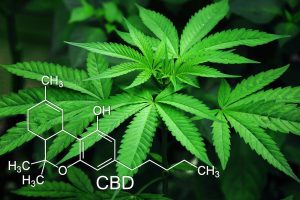
Hypnosis to Stop Smoking Weed (Marijuana)
The Difference Between Using Hypnosis to Stop Smoking and Stopping the Smoking of Weed (Marijuana)
by Suzanne Kellner-Zinck

Even though most smokers will say that they are “addicted” to nicotine they misuse the term “addicted” in this case. People who are truly addicted to a substance need to have that substance to stop going into withdrawal. In this case, I am speaking of dealing with those symptoms that can be life-threatening in some cases. I have worked with smoking cessation as well as addictions to the hard drugs and the difference between them is huge.
When one stops smoking cigarettes one may become irritable, feel the urges to have a cigarette, and feel uncomfortable. However, most smokers are able to make it through the night without a cigarette. Many are able to handle very long cross country and cross the globe flights without being able to have a cigarette. For a true addict, this would not be possible. Their bodies would go into a sort of shock without the dopamine being released into their body’s systems with the use of their chosen drug. Most people who are addicts have to use their drug just to feel “normal” having lost the normal dopamine pleasure response. Without the drug, they become unable to function in any way, feeling depressed, anxious, and steadfastly seeking out their drug of choice no matter the cost to themselves financially, personally, and even risking losing their job and perhaps even a term in prison. Most of the people in prisons in the United States are indeed people who are drug abusers/addicts these days.
In the case of weed, it has gotten a bit more complex as those selling the weed have added all sorts of other chemicals to stretch the weed giving different effects that can be experienced in very scary ways to the user. I had a young client who came in to see me last year to stop his smoking of weed.
He was 19 years old. He told me that he was so scared by the ill effects of the weed he smoked that he drove himself to the emergency room. It was with this experience that he sought out my services. I spoke to him about the fact that the weed of today is stronger than that which was smoked when I was his age, about 30 years ago, and is now laced with all sorts of harmful chemicals, one of which may have brought him this terrible experience. What one needs to understand is that smoking weed is not something that is as easy to let go of as smoking of cigarettes. About 90% of my smoking cessation clients can stop in one session. Nicotine is not an addictive substance as the THC is in weed and therein lies the difference in how one has to treat the two substances.
In my treatment of weed, I do a full-scale substance abuse treatment. The client is going to have to get rid of all the negative emotions, limiting beliefs and do the forgiveness work and inner child work necessary to have them give up the main reason for their using the substance.. Unlike the smoking of tobacco products which are usually begun to fit in while in the teen years, the smoking of weed is used to stop the negative feelings, the depressed feelings, as self-medication akin to the way many abuses or get addicted to alcohol. As such it is a much larger problem that needs to be addressed with the due respect it requires. Anyone who tells you that they can help you to release the smoking of weed with one session is telling you something that is untruthful and will most likely lead you to feel a great disappointment as you find yourself relapsing, never having gotten to the root cause of its use. It is akin to having a person who suffers from anxiety being told that increasing self-esteem will handle the problem. Increasing self-esteem is only one step of many that need to be addressed when healing one of anxiety that has stopped one’s ability to live a fulfilling life.
Hypnosis is a viable method to stop smoking weed
However, one must understand the brain chemistry involved and more importantly, the underlying reasons why one would become addicted to the substance in the first place.
If one is not physically addicted to the weed, one would be emotionally addicted to the weed, and given the ability of the treating hypnotist, it may not require as deep a program to release it. However, I would still do the complete program to keep the client from ever going back to using it for any reason in the future.
by Suzanne Kellner-Zinck, Certified Trainer of Hypnosis and NLP and Master Hypnotist and Master Practitioner of NLP




Nice article Suzanne Kellner-Zinck.
Suzanne has addressed a complicated topic here and I want to respond to various aspects of what she’s written because there are parts with which I agree and other areas where I do not.
First, Suzanne makes an important distinction between addiction and habit. This is a useful reframe that I also use when I help people stop smoking, whether cigarettes or pot. However, she makes a gross generalization that I believe is largely false when she claims “Most of the people in prisons in the United States are indeed people who are drug abusers/addicts these days.”.
The costly and unjust US “War on Drugs” has swelled the national inmate population at a time when the prison system has ballooned into a major corporate industry driven by profit. While a growing number of states are changing their laws to permit various forms of marijuana use, there are huge numbers of people currently incarcerated for possession of small amounts of pot. I don’t intend to divert this response into a political debate but simply to suggest that there is no factual evidence to support Suzanne’s claim quoted above.
Next Suzanne compares the potency of weed grown today with that of 30 years ago. I don’t believe a plant from that era exists or if it does that it could be used for a measurement of its strength in a direct scientific comparison with a modern plant. In any case, marijuana cultivation today surely does produce much stronger strains as a result of plant genetics.
Let me be candid. I do not grow marijuana but live in Humboldt County, CA, a community known around the world as the mecca for both quantity and quality cultivation of this plant. Virtually all matters related to this process are very openly discussed here, including in our robust local media. Many among the multitude of pot growers here, whose work is widely recognized as the primary engine of our local economy, devote themselves to an understanding of horticultural science.
The suggestion that harmful chemicals are added to make weed more addictive is as silly sounding as Nancy Reagan’s quaint “Just say no” campaign and as falsely fear-based as the old saw of children needing to be wary of finding razor blades in apples received during Halloween trick or treating. A 19 year old who gets too high and freaks out a bit is only evidence of an inexperienced smoker and the fairly common undesirable side effects of excessive self consciousness and paranoia.
Having said all that, I agree with Suzanne that it is quite different to help someone stop smoking pot compared to cigarettes. As she correctly points out, stopping pot smoking is definitely not a one session hypnotherapy issue. Still, I caution her and anyone who thinks there are the same underlying issues always inherent for all clients desiring to make the same behavior change. While negative emotions, limiting beliefs, forgiveness and inner child work may be common, they are by no means universal nor necessarily all encompassing for working with every client who wants to stop smoking weed.
Another factor frequently involved is resolving not just one but layers of inner conflict. I know this from the experience of helping my own clients, which I only became ready to do after ending my own pot smoking habit. Interested readers can find my personal story here: manifestpositivity(dot)com/nlp-helped-stop-smoking-pot.
One of the reasons I’ve found inner conflict to be common is because the cannabis plant does have very real beneficial medicinal applications. There are people who make claims about raw, pure tobacco having cultural, spiritual and healing value too. Both pot and cigarette smokers limiting themselves to these applications are not likely to experience the inner conflicts that lead to out of control habits and a need for hypnotherapy. This discussion does not really pertain to these people anyway.
Cigarette smokers who seek hypnotic assistance usually aim to eliminate their use of commercial tobacco that is genuinely laced with harmful toxic poisons intended to create dependency. On the other hand, pot smokers who have decided to seek help reducing or eliminating their usage are often capable of maintaining their intellectual appreciation of the plant’s healing qualities without demonizing it or its growers the way cigarette smokers often need to “let go of an old friend” and reject the companies and brands that greedily and deceptively market their products.
In conclusion, Suzanne makes some worthwhile distinctions between working with people who want to stop smoking cigarettes and those ready to change their relationship with pot. I just think she can use more accurate points to make her case.
Respectfully submitted,
Dave Berman, C.Ht.
Just wanting to make sure this is seen by Mark Barrus, James Hazlerig and Juan P Acosta.
Very good commentary Dave. Your 3rd paragraph with prisons and reference to "Just say No" overlook something that only addicts, those close to them, and counselors get to know all-to-well, "the Addictive Personality." On the other hand, yes it is good you distinguish between chemical induced addiction vs. psychological addiction. Again, I'm reminded that for all we spend on incarceration and the "War on Drugs" how better that money could be spent on "holistic" recovery programs that deal at all levels.